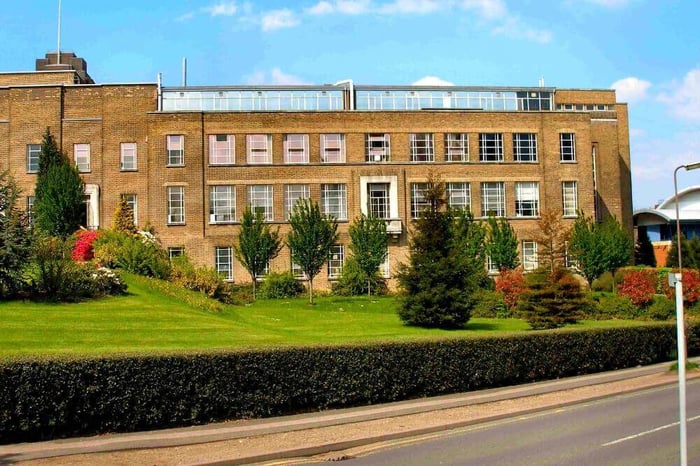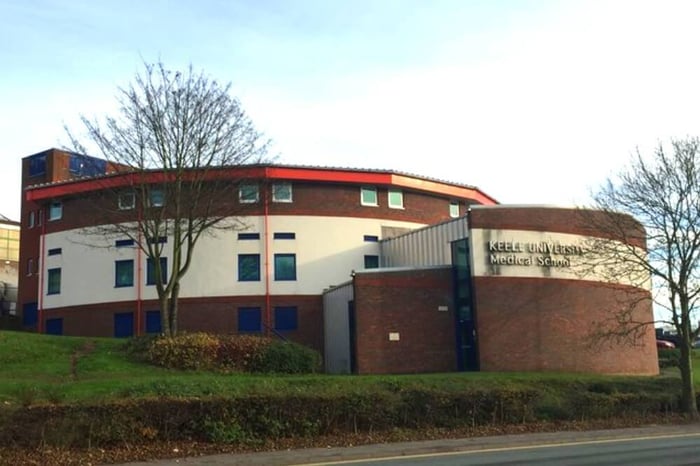Communication and listening skills are important for acing your medical school interview. However, your need for communication skills does not stop there. Working as a medical professional it is vital that you have strong interpersonal skills. Therefore, your interview is your chance to show the interviewers you have what it takes.
- ‘What are the most important aspects of communication?’
- ‘How would you rate your ability to communicate with your peers?’
- ‘Tell me about a time when you, or someone you observed, had a difficult time communicating with someone.’

These are a few of many common communication interview questions that focus on your ability to communicate with people around you. It can be difficult to prove to the interviewers that you possess good communication skills.
In this blog post, I will talk about how you can use a structured approach to showing off your ability to communicate in both your interview and personal statement. Note that although this article focuses on communication, it is also applicable to other aspects of interviews such as talking about your strength and weaknesses.
The significance of communication
As a doctor, the role requires strong communication skills. From communicating with your patients explaining a complex medical issue, to your working relationship with your team members, it is a key skill that every doctor needs. In the context of applying to medical school, it is a trait that all medical schools are looking for. Medical schools want students who are powerful communicators, whether be with their peers or patients.
A proportion of the interviewer’s impression of your communication skills is based on:
- The way you present yourself
- The way you come across in the interview
- Your verbal communication skills
- Your body language
- Your level of eye contact
Your interviewing skills can always be polished up through the proper preparation. Hopefully, at the end of this post, you will be able to get some ideas on how to do that.
What is effective communication?
Effective communication is getting your point across to another party by talking in clear and simple terms. It is also when the person you are communicating with is a good listener, absorbs your point and understands it. Essentially, communication is a ‘give and take’ process and it is something you practice every day.
As mentioned above, how you come across in the actual interview will add to the interviewers’ perceptions of your ability to communicate. While it is important to speak with confidence, don’t forget to also display your ability to listen actively. Active listening means nodding and showing that you are listening when they speak- because communication is a two-way process!
Reflection as a tool to promote yourself
Before we talk about how to share your reflections in a structured manner, it is important to understand the benefits of reflecting on your actions. Talking through your experiences allows you to assess your own thoughts and actions. This can contribute to your personal learning and development. As a junior doctor, you are expected to continually update your e-portfolio with reflections on difficult situations you have faced and explain what you would do to improve them.
The General Medical Council (GMC) recommends that doctors regularly reflect on their own performance, professional values and contribution to any teams in which they work. Being a reflective practitioner is crucial, for you to better your practice and for you to cope with the difficulties that you face as a doctor.
In my opinion, this is a way that you can comfortably ‘sell’ yourself as a proficient communicant. By reflecting an experience or a situation you have observed, you give the interviewer a better glimpse into your thought process and what emotions you feel and why. This is a great way to demonstrate how you think and how they affect your actions. This is much better than simply factually recounting an event that happened without explaining your inner thoughts. Essentially, it’s like only giving the answer to a math question without showing the work up to it- this may lose you brownie points!
Now that you know the importance of reflecting, let’s talk about how to use this skill to sell your communicative abilities!

Be methodical in your med school interview
A very useful framework that I use to help me reflect is the Gibbs Reflective cycle (1988). These six steps are a good way of describing your thoughts on what has happened in a situation in which you thought communication played a huge role. Bear in mind that this does not necessarily have to be a situation you were directly involved in. You can also describe situations that you have observed, such as those that you see while shadowing medical professionals in your work experience.
1. Description
You start off by describing the salient points of a situation you have observed or been involved in. It is important to summarise this into less than two sentences because there is a lot more that you have to cover!
Example: ”During my work experience, I observed a physiotherapist interacting with an elderly patient who was struggling with her breathing. The patient was not very interactive and it took a lot of effort from the physiotherapist before the patient gradually warmed up. Towards the end of the session, they were both able to set a goal to be achieved by doing physiotherapy that they both agreed upon together.’’
2. Feelings
Next, describe what sort of emotions and thoughts this situation evoked from you and briefly explain why.
Continuing on with the example above:"I felt a lot of respect for the physiotherapist’s patience in building a rapport with the patient. I also felt respect for the effort she put into ensuring that he understood the importance of having physiotherapy.’’
3. Evaluation
Talk about what was good and bad about the situation that you have observed and what made you think that.
Example: ’’It could have been easy for the physiotherapist to go through the motions of the exercise and not bother with engaging the question. By building the rapport with the patient and communicating the importance of the exercise, the patient had a better understanding of how these exercises could improve his condition.’’
4. Analysis
Describe what you thought about the situation and what sense you made of it.
Example: "If the patient had not been educated on the importance of these exercises in this session with the physiotherapist, he could be less likely to carry out the exercises he was shown on his own.’’
5. Conclusion
Summarise the situation and talk about anything else that you could or would have done.
Example:“The physiotherapist used simple, non-medical terms that the patient could understand and make sure she was engaging the patient in the session and this really improved the outcome of it.”
6. Action plan
Talk about what you would do if a similar situation arose again.
Example: ’If I was faced with a situation, I hope to apply the same patience and effort in ensuring that the session is focused on the patient’s ideals so that I can sufficiently engage them to form enough of a rapport with them so that we are working towards the same goal.’
From the example, you can see that by applying these six steps you can:
- Show that you understand the importance of effective working communication
- Indicate what poor communication could bring in terms of a poorer outcome
- What factors helped to engage the patient
7. Key takeaways
- Speak confidently
- Actively listen- communication goes both ways!
- Reflection will be an important part of your life as a medical student and a doctor, so learn it well!
- Use the six steps to practice talking about your experiences or situations you have observed, both good and bad!
We hope that this post has been useful in your interview preparation. Don't hesitate to send us any questions or comments by email at hello@theMSAG.com. Good luck for your interview!







